The 16th United Nations Convention on Biological Diversity, easier known as COP16, has ended in Cali, Colombia. After gavelling in some key agreements, the final negotiations were suspended in its last minutes, to be resumed at a future date. Running over only a couple hours past sunrise – a respectable ending time in these processes – the biodiversity talks answered some major questions but left the main issue of funding open.
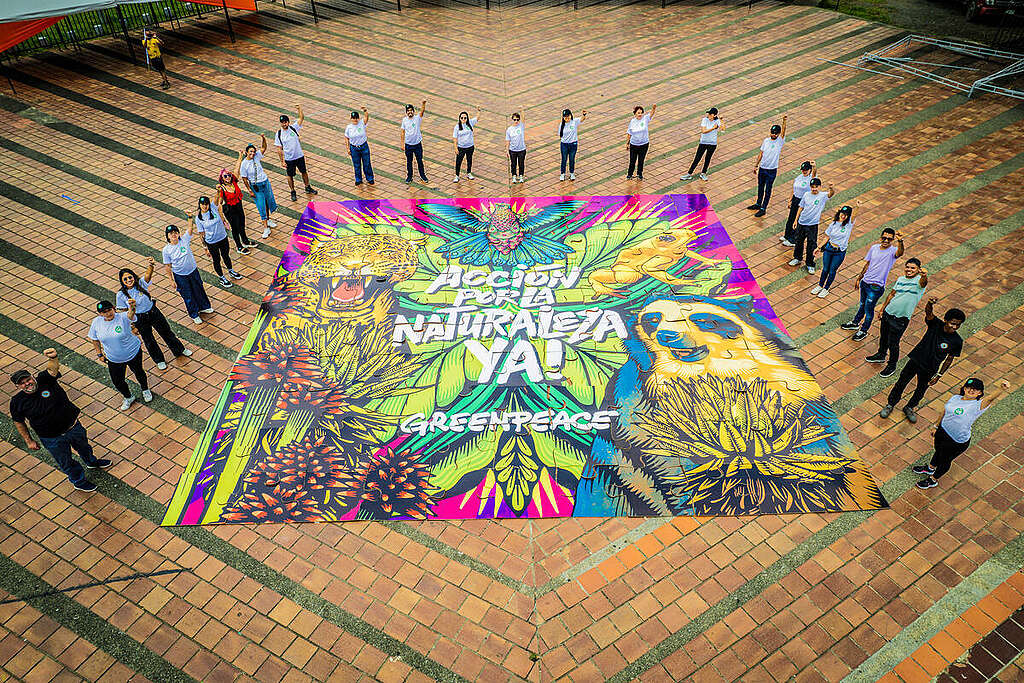
First, the good news
COP16 finally saw the establishment of a new body dedicated to Indigenous Peoples' rights, roles, territories and knowledge. The creation of this subsidiary body for Indigenous Peoples as a participating entity in future biodiversity talks in the UN is a recognition of the peoples who have, for millennia, coexisted with, managed, and enriched biodiversity through traditional knowledge. When the establishment officially passed in the final plenary, the moment brought the room to a heart warming standing ovation.
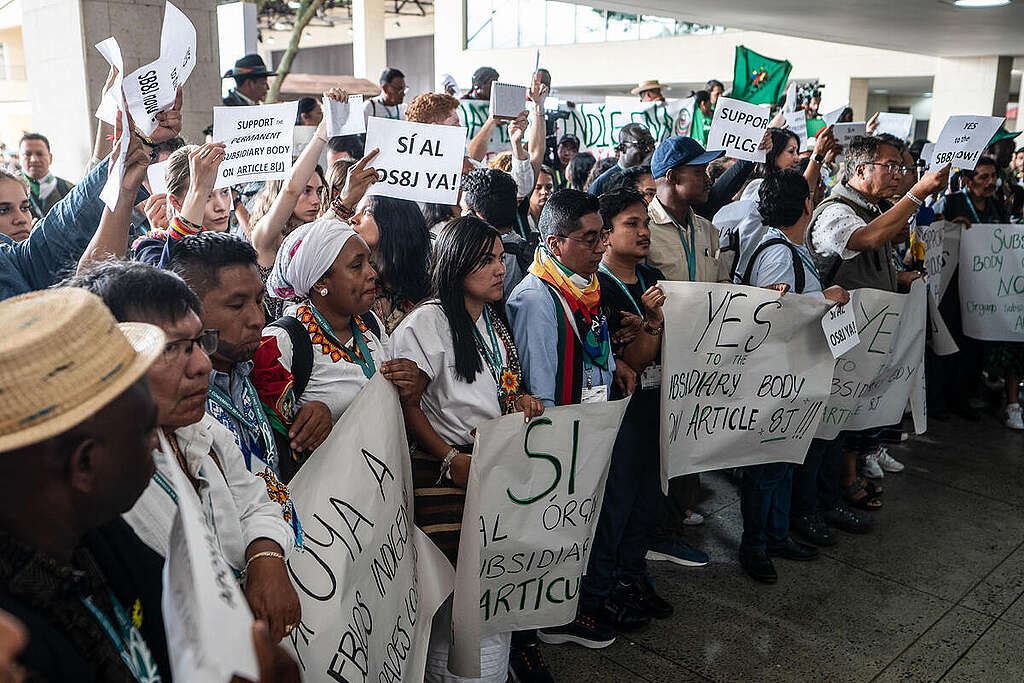
On ocean protection, governments finally established a standardised way to identify ocean areas with high ecological value. In doing so, COP16 helped pave the way for the Global Oceans Treaty to be ratified by June 2025. Additionally, the interconnectedness between biodiversity and climate action was acknowledged, further clearing the way forward for protecting the ecosystems that sustain people and the planet.
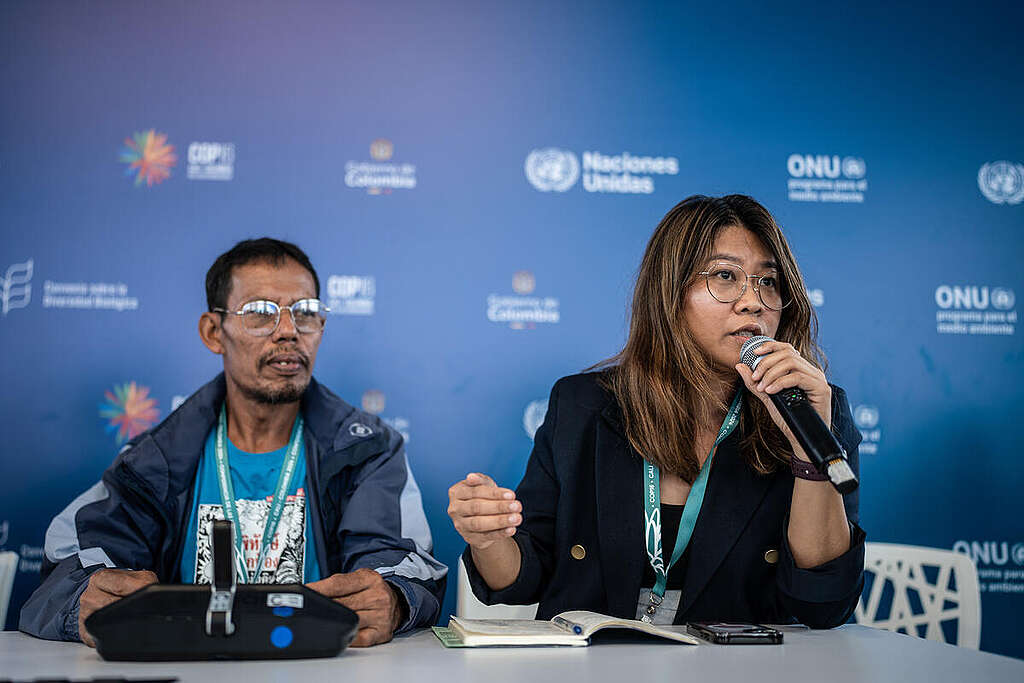
In a real win for people power, despite intense lobbying and high numbers of Big Pharma and Big Agribusiness representatives, but amid a strong push from an equally-determined civil society, corporate lobbyists failed to block a game-changing deal on corporate responsibility to pay for nature protections, curbing their ability to continue profiting off of nature for free. This means companies that take genetic resources from nature to make cosmetics, genetic engineered seeds and scientific research, to name a few, and profit billions out of it, will have to pay back to protect the same nature they rely on to make money out of.
Now the not so great news
Although governments in Cali shared plans for the future finance fund, they fumbled on mobilising the actual financing during this round of negotiations. Amidst an increasing need for biodiversity protection that grows more urgent each day, and despite promises from Global North countries to pay what they still owe, biodiversity finance remains stalled after an absence of credible finance pledges from wealthy governments. Our natural world is in a crisis, and people all over the planet are already being impacted by it. Yet, Global North countries continue to put money above life on our planet.
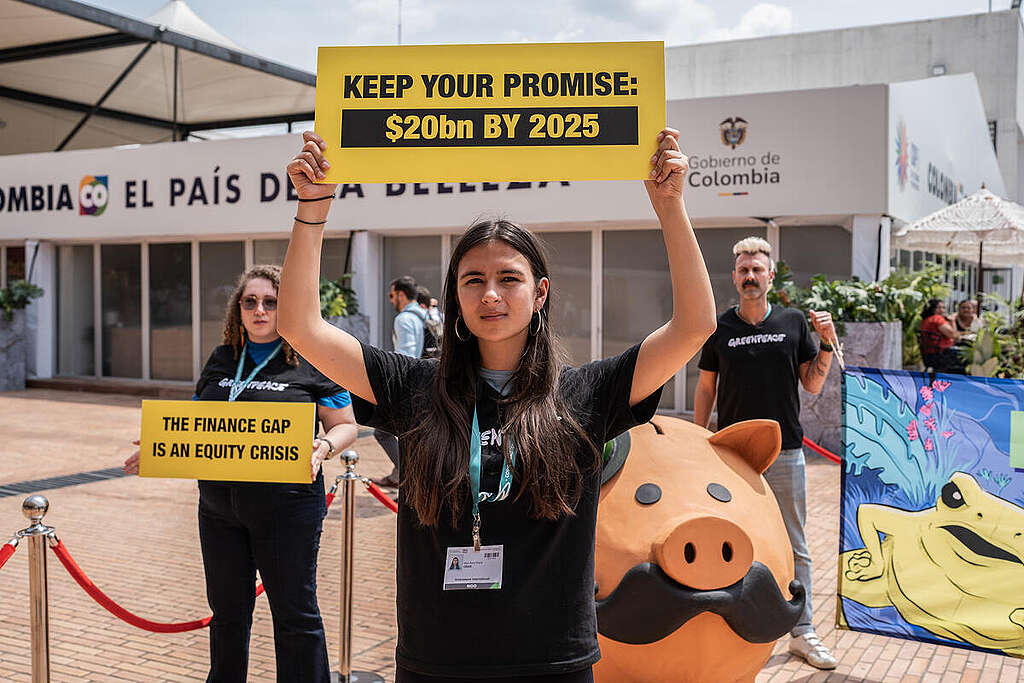
With this action, the environmentalist organization reminds rich countries of their commitment to contribute 20 billion dollars for the protection of biodiversity by 2025. © Nathalia Angarita / Greenpeace
So what's next for Biodiversity protection?
Clearly, the public finance from wealthy governments needs to come through, as soon as possible. How to achieve this is left as homework for world leaders at home, at the next biodiversity COP, particularly for those who will convene in Baku, Azerbaijan next week at the UN climate COP29.
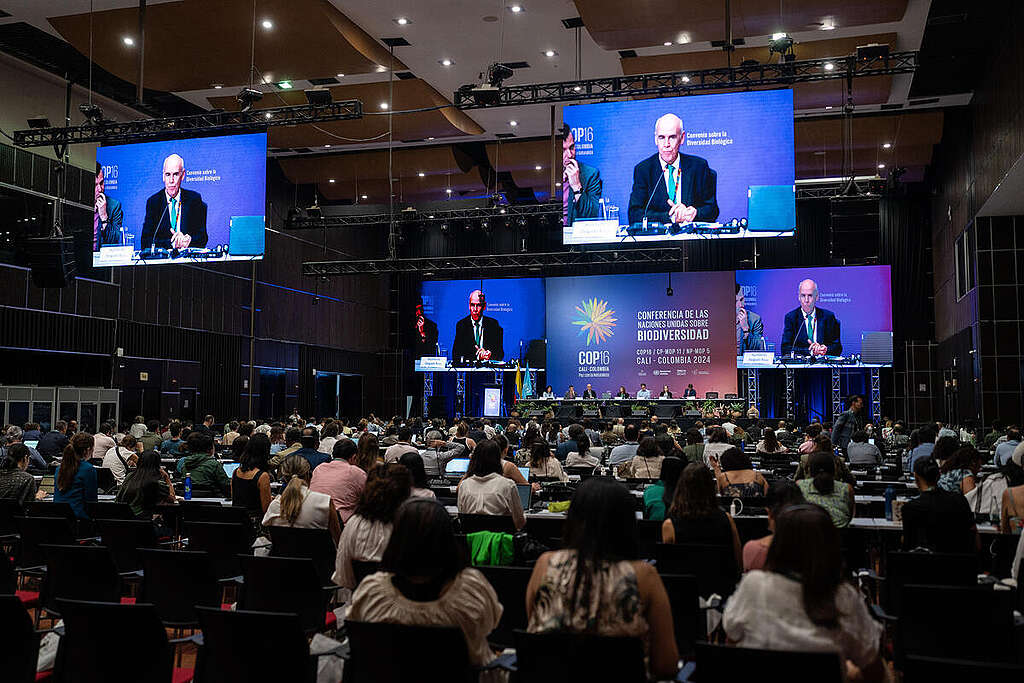
COP17 will meet in 2026, in Armenia, where governments will need to evaluate if they acted fast enough and build upon the work done in Colombia.






